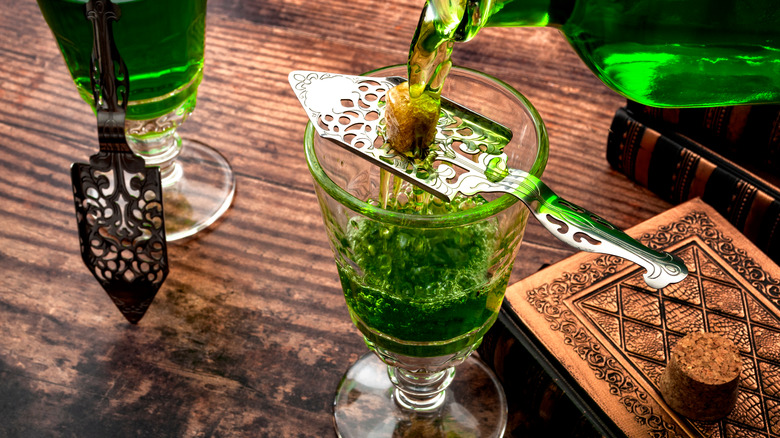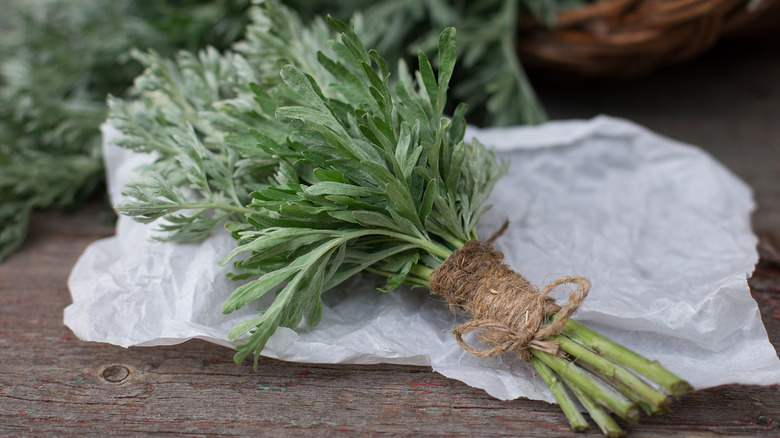How Absinthe Earned The Nickname 'The Green Fairy'
Absinthe has inspired tall tales for centuries — and at times, the high-proof, anise-flavored spirit was even outright banned. Artists like Vincent Van Gogh and Oscar Wilde, the eccentrics of their times, loved absinthe and made odes to the beverage in their various works. But the association with Bohemian counterculture made absinthe a target of social conservatives. When a farmer in Switzerland killed his wife after a day of binge drinking the spirit, it received nasty backlash, with some claiming absinthe possessed mind-altering effects beyond the standard alcoholic beverage.
Absinthe is actually not a psychoactive drug — it's just a really, really strong spirit, clocking in on average at 50-72% alcohol by volume. To compare, straight whiskey is typically between 40% and 50% ABV. If you've ever heard the term "chasing the green fairy" as a euphemism for drinking this tantalizingly verdant liquor, you may associate it with psychedelics and hallucinogens. But that isn't where the name "green fairy" comes from at all.
Absinthe was originally used as medicine
Absinthe is a botanical spirit, similar to gin, and was actually invented by a French doctor named Pierre Ordinaire. Ordinaire looked to the wormwood plant, absinthe's most notable ingredient, for its medicinal purposes. This was not without precedent. Wormwood was used for its medicinal purposes as early as 1550 B.C. in ancient Egypt. This is a common story when it comes to drugs and alcohol — heroin started out as a cough remedy, while gin was used to cut through the bitter taste of quinine, a malaria-fighting drug.
The high-proof botanical absinthe was prescribed by Ordinaire as a cure-all, from aiding indigestion to expelling parasites. This seemingly magical concoction composed of wormwood, anise, fennel, and a myriad of other herbs was doled out to villagers for just about every ailment. As a result, it affectionately started being called "la fée verte" or "the green fairy." And, while the medicinal benefits of wormwood are still being researched, if we're being honest, villagers also probably loved the exceptionally high alcohol content that accompanied absinthe.

